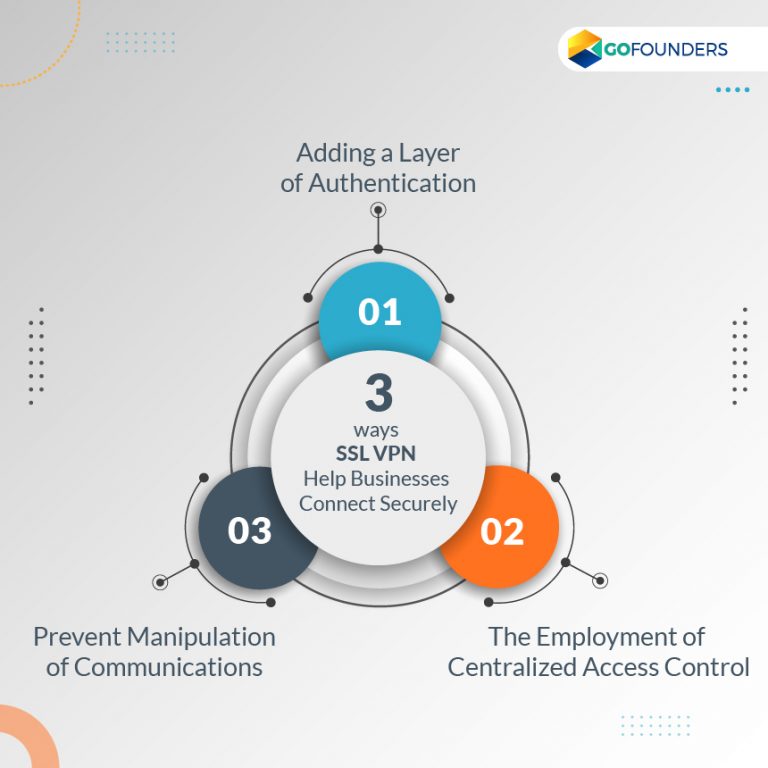
Let’s assume you are working miles away from your office location and you want to get access to your company’s intranet portal. How would you do that? Well, there is one way. You can publish the portal on the web, thereby enabling access to all the employees irrespective of the location. However, publishing all the applications on the web can result in some serious security issues. Thus, you must adopt virtual private network support to foster security with your portal on the web.
The virtual private network comes in two forms that are IPSEC VPN and SSL VPN. This article will shed light on three ways in which SSL VPNs help businesses connect securely. But first, let’s look at SSL VPN.
What is SSL VPN, and how it works?
A Virtual Private Network is a kind of technology that enables a user to create a private or more secure network over the Internet or any public network. This is realized by setting up a secure tunnel between the user’s device and the enterprise/office network after verifying the user. Thus, it becomes possible for the distant employees to get access to an enterprise’s internal network without needing to trade off on security.
Secure VPN utilize tunneling protocols that carry cryptographic capabilities. Secure Socket Layer (SSL) is a protocol that offers confidentiality and authenticity while connecting over the Internet. SSL VPN avails SSL protocol to assign security to the VPN tunnels.
Key Benefits of SSL VPN
1. Adds a layer of protection
To deal with hackers and cybercriminals, you need to provide additional layers of security. But is hacking inescapable? Clearly, No. Each company is capable of getting exposed to malpractices of hacking. However, what ways you employ to protect yourself has great potential to reveal your preparedness when you are being targeted. SSL VPNs provide enterprise authentication services that add a layer of protection against hacking and related activities.
2. Enable data encryption
One of the common techniques exploited by the attackers is they try to intercept the content of communication; thereby, they can manipulate the data to acquire sensitive information, including financial data or login credentials.
When you are enterprise is enabled with SSL VPN, you can prevent such kind of data breaching. An SSL VPN allows encrypted data to flow between user devices and the VPN server. So the hacker won’t be able to manipulate data flowing through this path. However, data is decrypted once it leaves the VPN tunnel. Thus, an enterprise must be extra cautious while sending or receiving data outside of the company’s secure network.
3. Facilitate centralized access control
When employees need to work remotely, there are situations that may incur various issues like bad weather or other travelling concerns. With SSL VPN, employees can access the corporate network in the form of centralized access control. This function allows a user to access company resources using the same login credentials irrespective of the location he is operating from. A single SSL VPN server acts as a gateway and enables the function of centralized access control.
Conclusion
Network security is one of the major concerns for any enterprise. It becomes more crucial when your employees are working remotely and want to access company resources. With the SSL VPN server’s given capabilities, your enterprise can foster security to your portal on the web. While these servers cannot stop hacking completely, they act as a shield to fight back the attacks and reduce their intensity. Thus, your enterprise must enable the installation of an SSL VPN server to equip itself with protection and security measures while operating on a public network. ONPASSIVE’s VPN is a right tool to start with!


